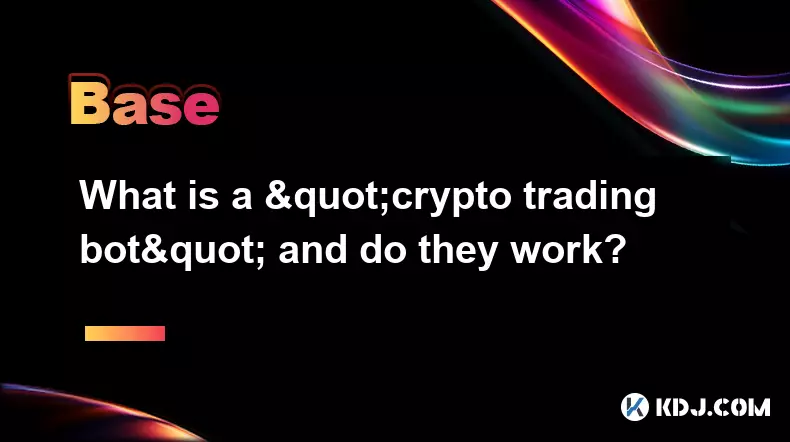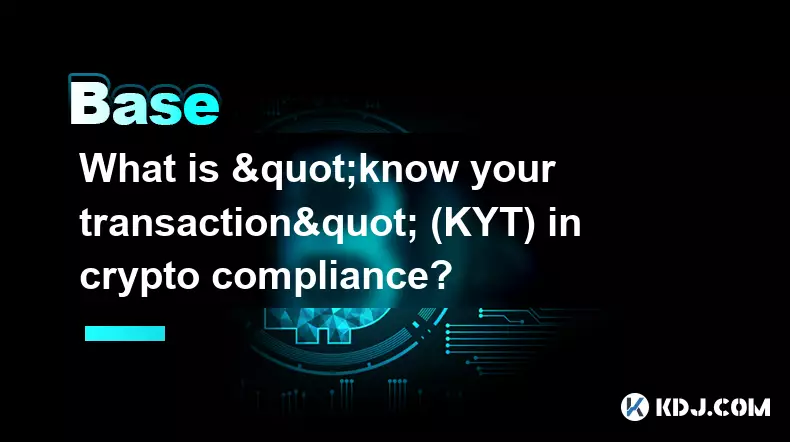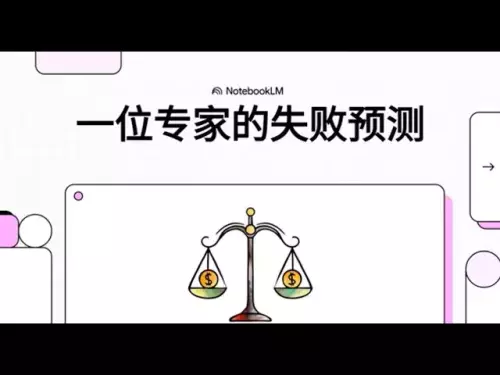-
 Bitcoin
Bitcoin $110500
1.25% -
 Ethereum
Ethereum $4293
-1.16% -
 Tether USDt
Tether USDt $1.000
-0.01% -
 XRP
XRP $2.801
2.05% -
 BNB
BNB $849.6
0.42% -
 Solana
Solana $204.0
2.56% -
 USDC
USDC $0.9999
0.00% -
 TRON
TRON $0.3372
0.33% -
 Dogecoin
Dogecoin $0.2112
-0.30% -
 Cardano
Cardano $0.8146
1.05% -
 Chainlink
Chainlink $22.91
0.69% -
 Hyperliquid
Hyperliquid $43.84
0.00% -
 Ethena USDe
Ethena USDe $1.001
-0.01% -
 Bitcoin Cash
Bitcoin Cash $583.3
7.01% -
 Sui
Sui $3.242
0.76% -
 Stellar
Stellar $0.3599
2.25% -
 Avalanche
Avalanche $23.75
1.18% -
 Hedera
Hedera $0.2139
-0.34% -
 UNUS SED LEO
UNUS SED LEO $9.558
-0.30% -
 Cronos
Cronos $0.2505
-7.26% -
 Litecoin
Litecoin $110.0
1.05% -
 Toncoin
Toncoin $3.142
0.54% -
 Shiba Inu
Shiba Inu $0.00001233
1.73% -
 Polkadot
Polkadot $3.759
0.91% -
 Uniswap
Uniswap $9.437
0.93% -
 Bitget Token
Bitget Token $5.068
8.45% -
 World Liberty Financial
World Liberty Financial $0.2251
-9.23% -
 Dai
Dai $0.9998
-0.01% -
 Monero
Monero $262.1
0.77% -
 Aave
Aave $311.8
1.76%
What is cold storage in crypto?
Cold storage keeps crypto safe by storing private keys offline, protecting them from online threats like hacking and malware.
Aug 13, 2025 at 11:35 am

Understanding Cold Storage in Cryptocurrency
Cold storage in cryptocurrency refers to a method of storing digital assets offline, away from internet-connected devices. This approach is designed to protect private keys—the cryptographic codes that grant access to cryptocurrency holdings—from online threats such as hacking, phishing, and malware. When funds are kept in cold storage, they are not exposed to the vulnerabilities associated with online exchanges or hot wallets. The core principle behind cold storage is that an offline device cannot be remotely accessed, significantly reducing the risk of unauthorized access.
Cold storage solutions are considered one of the most secure ways to hold large amounts of cryptocurrency over extended periods. Unlike hot wallets, which are connected to the internet and used for frequent transactions, cold storage is ideal for long-term holding. Common forms of cold storage include hardware wallets, paper wallets, and metal backups. Each method ensures that the private keys remain isolated from networked environments, making them immune to remote cyberattacks.
Types of Cold Storage Devices
There are several types of cold storage solutions available, each with distinct characteristics and use cases.
Hardware wallets are physical devices that store private keys securely. Examples include Ledger Nano X and Trezor Model T. These devices generate and store keys offline and only connect to a computer or smartphone when a transaction needs to be signed. The transaction signing occurs within the device, ensuring private keys never leave the secure environment.
Paper wallets involve printing the public and private keys on a physical piece of paper. This method requires generating the keys using offline software to prevent exposure. While cost-effective, paper wallets are vulnerable to physical damage, loss, or theft if not stored properly.
Metal backups consist of engraved or stamped private keys or recovery phrases on stainless steel plates. These are highly durable and resistant to fire, water, and corrosion. They are often used to back up seed phrases from hardware wallets.
Each of these options prioritizes isolation from internet connectivity, which is the foundational security feature of cold storage.
How to Set Up a Hardware Wallet
Setting up a hardware wallet involves a series of steps that must be followed carefully to ensure maximum security.
- Purchase the device directly from the manufacturer’s official website to avoid tampered units.
- Connect the device to a trusted computer using the provided USB cable.
- Follow the on-screen instructions to initialize the device. During this process, the wallet will generate a recovery seed phrase, typically consisting of 12, 18, or 24 words.
- Write down the seed phrase on paper or store it in a metal backup. Never save it digitally or take screenshots.
- Confirm the seed phrase on the device by selecting the words in the correct order.
- Set a strong PIN code directly on the device. This PIN protects access if the wallet is lost or stolen.
- Install the wallet’s companion software (e.g., Ledger Live or Trezor Suite) to manage funds and interact with blockchains.
Every step must be performed on a clean, malware-free device. The seed phrase must never be entered into any online system, as doing so could expose it to attackers.
Transferring Crypto to Cold Storage
Once a cold storage device is set up, transferring cryptocurrency to it requires precise actions.
- Open the wallet interface (e.g., Ledger Live) and navigate to the receiving section.
- Select the cryptocurrency you wish to store.
- The application will display a public address associated with your hardware wallet. This address is safe to share.
- Copy the address carefully or scan the QR code using the sending platform.
- Initiate the transfer from your exchange or hot wallet, specifying the correct amount.
- Confirm the transaction on both the sending platform and the hardware wallet device.
- Wait for blockchain confirmations. The number required depends on the network (e.g., Bitcoin may require six confirmations).
Always double-check the recipient address before confirming. Transactions on blockchains are irreversible, and sending funds to the wrong address results in permanent loss.
Security Best Practices for Cold Storage
Maintaining the security of cold storage requires ongoing vigilance and adherence to best practices.
- Store the hardware wallet and seed phrase in separate secure locations, such as a safe or safety deposit box.
- Never share the seed phrase with anyone, including customer support representatives.
- Use a passphrase (25th word) if supported by the wallet. This adds an extra layer of protection, effectively creating a hidden wallet.
- Regularly update the firmware of the hardware wallet through official channels only.
- Avoid using public computers or untrusted networks when interacting with the wallet.
- Test the recovery process in a safe environment by restoring the wallet on a secondary device using the seed phrase.
These practices ensure that even if one component is compromised, the assets remain protected through layered security.
Frequently Asked Questions
What happens if I lose my hardware wallet but have the seed phrase?You can recover your funds by using the seed phrase on another compatible hardware or software wallet. The seed phrase is the ultimate backup and grants full access to your cryptocurrency as long as it is entered correctly.
Can cold storage be hacked?Cold storage itself cannot be hacked remotely because it is offline. However, physical theft, loss, or exposure of the seed phrase can lead to compromise. The security of cold storage depends on user behavior and proper handling of backup materials.
Is a paper wallet still a safe option for cold storage?Paper wallets can be safe if generated offline and stored securely. However, they are prone to degradation, loss, and human error. Metal backups are generally more durable and recommended for long-term storage.
Do I need to pay fees when moving crypto from cold storage?Yes, every transaction initiated from cold storage requires a network fee, also known as a gas fee or miner fee. This fee is paid to validators or miners on the blockchain and is independent of the wallet type used to send the funds.
Disclaimer:info@kdj.com
The information provided is not trading advice. kdj.com does not assume any responsibility for any investments made based on the information provided in this article. Cryptocurrencies are highly volatile and it is highly recommended that you invest with caution after thorough research!
If you believe that the content used on this website infringes your copyright, please contact us immediately (info@kdj.com) and we will delete it promptly.
- XTZ Price Wobbles: Tezos in Neutral as RSI Hovers
- 2025-09-03 00:45:16
- Bitcoin Strategy: Navigating Investment in the Age of Crypto
- 2025-09-03 01:05:17
- Dogecoin Whales, DOT Miners, and Daily Returns: Riding the Crypto Tide
- 2025-09-03 01:25:12
- XRP, Remittix, and Price Predictions: Decoding the Future of Cross-Border Payments
- 2025-09-03 00:50:12
- Syscoin Meetup Heats Up Lima: What's Buzzing?
- 2025-09-03 00:25:13
- Dogecoin Treasury Collapse? A Wild Ride on Wall Street
- 2025-09-03 00:25:13
Related knowledge

What is a "crypto trading bot" and do they work?
Sep 02,2025 at 04:19pm
Understanding Crypto Trading Bots1. A crypto trading bot is a software application designed to automate the process of buying and selling cryptocurren...

What is a "copy trading" platform?
Sep 02,2025 at 07:00pm
Understanding Copy Trading in the Cryptocurrency Space1. A copy trading platform allows users to automatically replicate the trades of experienced inv...

What is "structured products" in DeFi?
Sep 02,2025 at 11:01pm
Understanding Structured Products in DeFi1. In decentralized finance (DeFi), structured products refer to customized financial instruments that combin...

What is "formal verification" for smart contracts?
Sep 03,2025 at 03:00am
Bitcoin's Role in Decentralized Finance1. Bitcoin remains the cornerstone of decentralized finance, providing a trustless and immutable ledger for pee...

What is "know your transaction" (KYT) in crypto compliance?
Sep 02,2025 at 11:36pm
Decentralized Finance and Its Role in the Crypto Ecosystem1. Decentralized finance, commonly known as DeFi, has restructured how financial services op...

What is the Financial Action Task Force (FATF) "travel rule" for crypto?
Sep 02,2025 at 11:54pm
Understanding the FATF Travel Rule in the Cryptocurrency Sector1. The Financial Action Task Force (FATF) introduced the 'Travel Rule' as part of its u...

What is a "crypto trading bot" and do they work?
Sep 02,2025 at 04:19pm
Understanding Crypto Trading Bots1. A crypto trading bot is a software application designed to automate the process of buying and selling cryptocurren...

What is a "copy trading" platform?
Sep 02,2025 at 07:00pm
Understanding Copy Trading in the Cryptocurrency Space1. A copy trading platform allows users to automatically replicate the trades of experienced inv...

What is "structured products" in DeFi?
Sep 02,2025 at 11:01pm
Understanding Structured Products in DeFi1. In decentralized finance (DeFi), structured products refer to customized financial instruments that combin...

What is "formal verification" for smart contracts?
Sep 03,2025 at 03:00am
Bitcoin's Role in Decentralized Finance1. Bitcoin remains the cornerstone of decentralized finance, providing a trustless and immutable ledger for pee...

What is "know your transaction" (KYT) in crypto compliance?
Sep 02,2025 at 11:36pm
Decentralized Finance and Its Role in the Crypto Ecosystem1. Decentralized finance, commonly known as DeFi, has restructured how financial services op...

What is the Financial Action Task Force (FATF) "travel rule" for crypto?
Sep 02,2025 at 11:54pm
Understanding the FATF Travel Rule in the Cryptocurrency Sector1. The Financial Action Task Force (FATF) introduced the 'Travel Rule' as part of its u...
See all articles





















![[Pycoin] PI Coin -Start introduction of practical use (emergency)?! Now .. 'Here' first you can use it first / How to accelerate mining #paikoin [Pycoin] PI Coin -Start introduction of practical use (emergency)?! Now .. 'Here' first you can use it first / How to accelerate mining #paikoin](/uploads/2025/09/02/cryptocurrencies-news/videos/pycoin-pi-coin-start-introduction-practical-emergency-accelerate-mining-paikoin/68b6ea848f2d1_image_500_375.webp)



































































